Plant breeding for
sustainable agriculture
![[Translate to English:] Foto: Innovation](../fileadmin/processed/b/c/csm_kws-hero-innovation2_58caabcaae.webp)
Fundamentals
Plant breeding for sustainable agriculture
Innovation at KWS is driven by research and development. KWS’ objective is to create high-performance varieties that meet various environmental and application requirements and deliver continuous value added to farmers. Plant breeding is a very research-intensive and long-term business. It takes an average of eight to 10 years to develop a new, high-performance variety.
Using state-of-the-art breeding methods, KWS has generated steady yield progress for decades and supports agriculture with solutions to tackle future challenges – for example, through varieties that boast improved drought tolerance or need less pesticide. The company also increases genetic diversity, which is vital to improving crops, through its breeding work on plants. We contribute to sustainable agriculture by continuously improving yields, minimizing the use of resources and increasing varietal diversity and play a key role in supplying people with food.
Research & development report
Breeding low-input varieties for sustainable agriculture
One of the core goals of the “Farm to Fork” strategy under the EU’s “European Green Deal” is to reduce the use of chemical pesticides in Europe by 50% and fertilizer use by 20% by 2030. As a seed specialist, we help address these demands on farming by breeding new varieties that absorb nutrients more efficiently or are more resistant or tolerant to diseases and other environmental influences. By 2030, more than a quarter of our variety portfolio is to comprise low-input varieties that deliver stable yields despite a low supply of nutrients or reduced use of chemical pesticides.
As part of its efforts to enable that, KWS creates stable testing systems to determine disease and feeding damage to our crops. Such systems are vital for reliably testing the genetics of our plants for tolerance or resistance to diseases and pests. Developing these systems entails high research costs, since they must be tailored to the individual living conditions of the pests. KWS can now draw on more than 40 testing systems for resistance breeding, while another testing platform for the cabbage stem flea beetle is currently under development – an important step in breeding oilseed rape varieties that are tolerant to this major pest.
To advance the development of droughttolerant varieties, we rely on and are continuously expanding technologies for analyzing and measuring plant traits. KWS has developed a fully automated system for phenotyping in the greenhouse in the shape of the “PhenoFactory,” which is around 470 square meters in size. Using cameras and sensors, the system can measure 25 different attributes, such as leaf moisture or water consumption. Among other things, this enables us to determine how efficiently the plants use water – a key parameter in ascertaining how a plant reacts to drought.
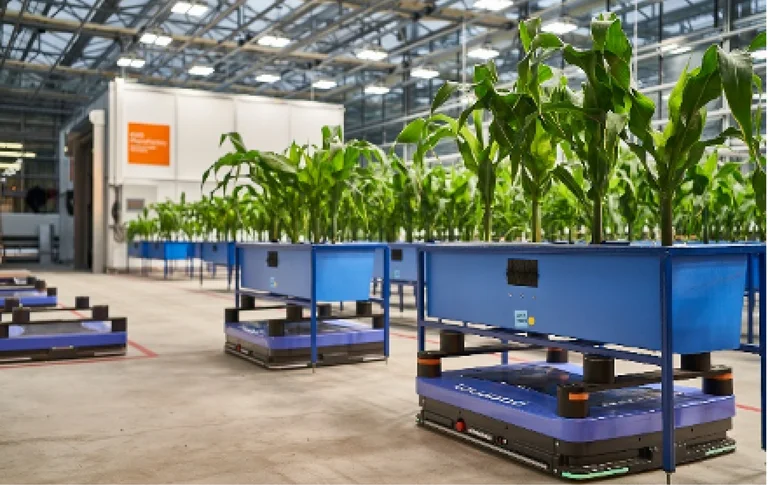
Vegetables: expansion of laboratory capacities, use of new seed technology, development of heattolerant bush beans
We inaugurated new research facilities at the headquarters of our Business Unit Vegetables at Wa-geningen in the Netherlands in February 2023. The premises, which cover an area of almost 450 square meters, offer space for labs and culture rooms for cultivating plants. Expansion of laboratory capacities is an important step in speeding up and enhancing quality in the development of new vegetable varieties. The focus is on producing doubled haploids for hybrid breeding of cucumbers and peppers. This method enables KWS to respond more quickly to increasing demands relating to quality, taste, disease resistance and yield stability, since the breeding process is accelerated significantly.
KWS INITIO is a new technology for seed treatment that has so far only been used for arable crops. By leveraging synergies between crops, we now enable vegetable seed to benefit from this development. Thanks to a nutrient treatment, seedlings are able to form more roots faster and better absorb the re-sources available in the soil. This more intensive root development means these plants are also able to react with greater resilience to stresses such as nutrient deficiency or drought later in their development. KWS has offered KWS INITIO for bean seed and spinach seed in Europe and Türkiye since January 2023.
Heat waves cause problems in bush bean cultivation in some regions. If night temperatures do not fall below 20 °C during flowering, the pods will be of poorer quality and the plants will deliver a lower yield as a result.
Over a period of around 15 years, we have bred heattolerant bean varieties – our Magma Collection – that provide growers with reliable yields even when night temperatures are high. The heattolerant beans were first launched successfully in the U.S., but we also see further market potential in Italy and Northwestern Europe.
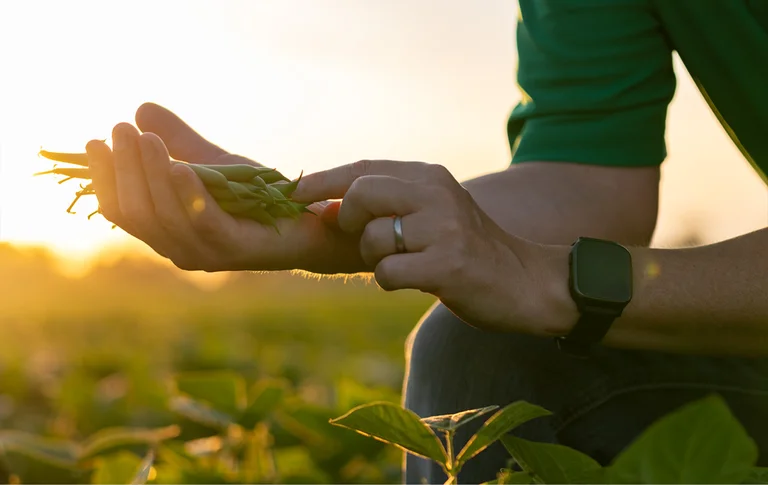
Sugarbeet: Development of tolerant and resistant varieties is growing in importance
In addition to safeguarding and increasing yields, the development of varieties that are also resistant or tolerant to pests is increasingly important in sugarbeet breeding. Pests are spreading further and further into cultivation regions – partly due to climate change – and are significantly reducing farmers’ yields.
A relatively new sugarbeet disease is the “syndrome basses richesses” (SBR), which is a growing threat in Germany and Switzerland in particular and in some cases causes considerable losses in yield. The disease is caused by pathogens transmitted by the planthopper Pentastiridius leporinus. There are at present no known effective chemical or agronomic measures to combat SBR.
The disease results in dramatically lower sugar content and reduces beet yields by up to 25%. KWS responded immediately by establishing testing systems so that it can press ahead with developing adapted varieties in a pinpointed manner. A first variety called JOSEPHINA KWS boasting good yields under conditions where crops suffer from SBR infestation was awarded approval in 2022. Further variety candidates with very good suitability for regions infested with SBR are undergoing official approval in Germany and Switzerland. In addition, we are continuously working to identify and cross in further resistance traits in order to further improve the tolerance of KWS’ sugarbeet varieties to SBR.
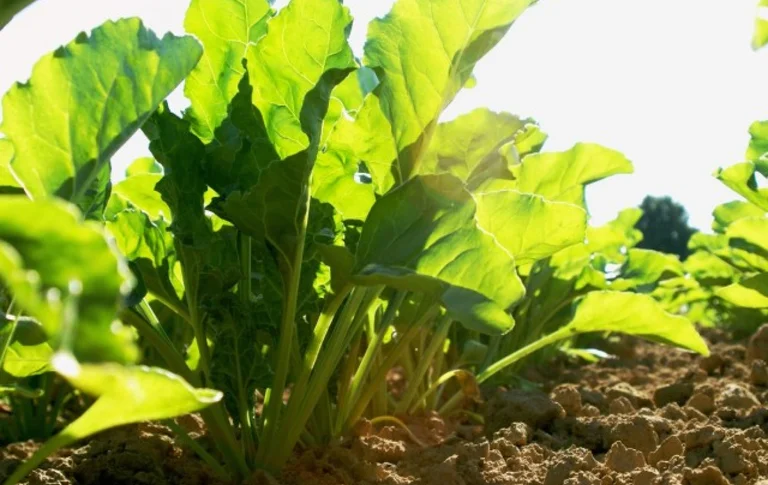
Corn: Diversity of genetic resources is a key success factor
Genetic diversity is the most vital prerequisite for breeding new varieties and adapting them to different environmental conditions. Thanks to its corn breeding activities since the 1950s, KWS has built up a large diversity of its own breeding material for various markets. This genetic diversity was again significantly expanded in 2012 when the company began breeding for the tropical and subtropical market in Brazil.
As a result, our breeders have with an ever-increasing pool of genetic resources to complement the breeding programs for different markets.
We breed corn, a crop that boasts great adaptability to local conditions, in different climatic regions. We maintain breeding programs in Germany, France, Italy and Southeastern Europe, for example. Corn must be adapted to dry conditions for markets in Southeastern Europe.
Here we were able to draw on the broad diversity of the breeding material we created in France in variety development and leverage it to develop products in Southeastern Europe. Systematic selection under drought stress conditions has enabled us to develop KWS BANATO and KWS FASCINATO (approval: spring 2023), varieties which are leaders in terms of drought stress in this important market.
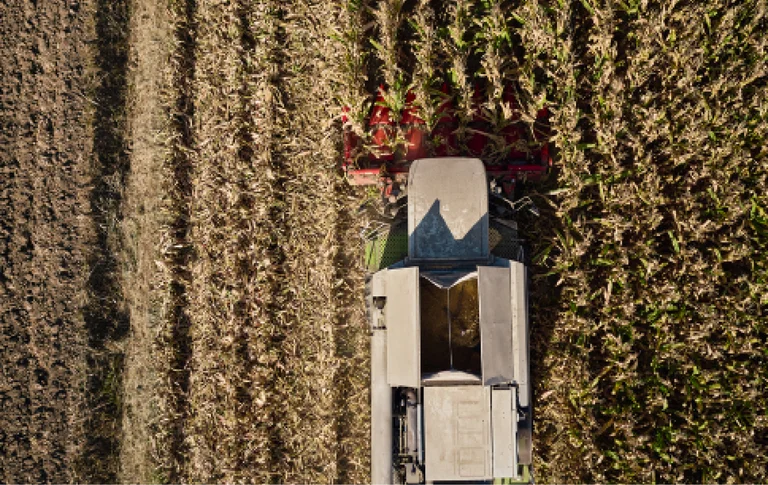
Barley: First hybrid varieties submitted for approval
As part of its research strategy, KWS launched a program aimed at developing hybrid barley in 2016. Hybrid breeding is a special form of variety development, in which two homozygous lines are crossed with each other. The progeny are called hybrids and usually perform better and boast greater resistance. We are now leveraging this effect for barley. The hybrids offer farmers the advantage of stable development thanks to better adaptability – even in dry years, for example – and thus greater yield security. In addition, hybrid barley makes weed management easier thanks to its rapid development in the juvenile phase.
In the past fiscal year, we achieved an important milestone in the development of hybrid barley: In the fall of 2022, the first variety candidates were submitted for approval in the UK and Germany. Further varieties are being developed and will be submitted for approval in the fall of 2023. The core markets for hybrid barley are the UK, Germany and France.
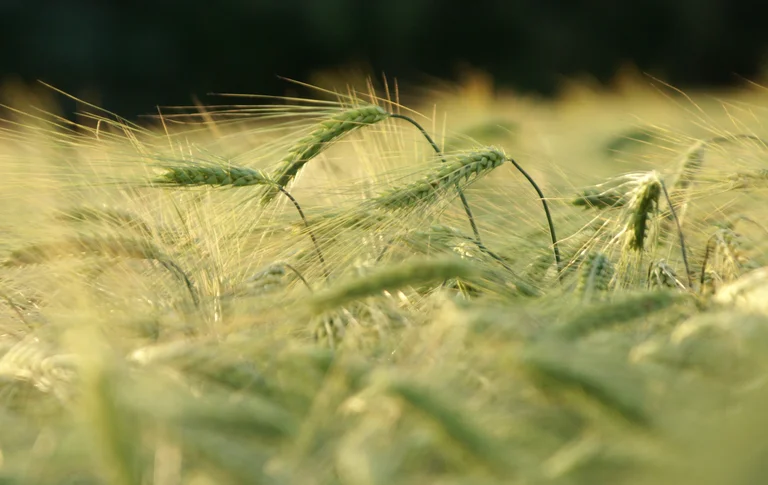
Sunflower: 10 new varieties undergoing approval
In 2010, KWS made the strategic decision to expand its portfolio to include sunflower, since this crop plays a major role in oil production in particular.
The aim is to develop competitive varieties for the markets in Southeastern and Eastern Europe based on a breeding program of our own. Sunflower is grown on an area of more than 20 million hectares in these regions and thus plays a key role in crop rotation. It will also gain in importance in the future against the backdrop of climate change: The sunflower’s root system enables it to cope particularly well with drought. KWS established a sunflower breeding station in Hungary in 2014. Breeding benefited from the technological infrastructure at our largest R&D location in Einbeck, for example in relation to the application of modern marker technology. In addition, we have been able to propagate several generations of sunflowers per year at our breeding stations in South America. As a result, KWS was able to submit the first sunflower varieties from its own breeding program for approval in several countries in the year under review.

R&D expenditure
Investment in the future
To be successful in the long term, continuous and intense research activities are required. It takes eight to twelve years for a new variety to be approved and become available to the market. In the 2022/2023 business year we invested 314.2 mio. € in research and development for high performing seeds.


